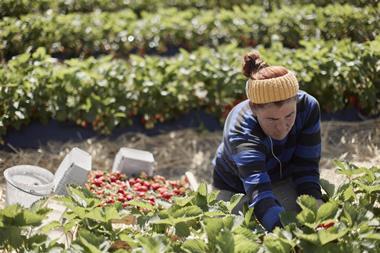?Vegetables that offer natural convenience are proving a big hit with the public, says Martin Evans, chief executive of Freshgro, the UK's biggest producer of Chantenay carrots
Freshgro has found that cultivating and washing baby vegetables so they are ready to use has attracted new customers to the marketplace and widened their retail outlet options.
Chantenay carrots now account for 30 to 40% of the £15m turnover of the co-operative of 10 vegetable growers based around Nottinghamshire, whose initial turnover in 1999 was £2.9m.
Since then, Freshgro has diversified into speciality lettuce, asparagus, salad potatoes and parsnips but it is still predominantly a carrot grower.
Its Chantenay variety was developed as a response to a customer's request for a baby carrot, and now the four major multiples stock them in their premium ranges, along with Waitrose and Marks and Spencer.
The challenge was using trials and breeding programmes to find a miniature version of the traditionally big and long Chantenay carrot that also retained the unique flavour and shape.
"We realised that the carrot we came up with would be very convenient for consumers because they wouldn't have to peel or trim them," says Freshgro's chief executive Martin Evans.
"People don't want to spend time preparing produce, but also don't want to pay us to prepare it either."
New technology was necessary to grow the notoriously difficult crop successfully and to manage the washing process, and new ways are now being developed to reduce labour and processing costs.
The result is a carrot that, according to Evans, is attractive to non carrot-eaters, and has been described as the new fashion food. "People who don't eat ordinary carrots tend to eat Chantenay," says Evans.
He says that standard carrots are more expensive than Chantenay in summer and slightly cheaper in winter, depending on the retailer. "But I don't think people are that price sensitive," he says. "I think we are appreciating that there is only so much UK consumers can consume, and if everybody is offering that price, our volumes go up."
New baby potatoes have benefited from the processes used to bring baby carrots to market, and baby parsnips are the next to be developed, with vegetable snack-packs for children's lunches and forecourts a possibility.
"We have got to make vegetables more appealing," says Evans, "and in a consumer-driven world we have to look at the messages that are being sent out."



















No comments yet